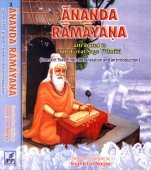Ban, Baṇ: 8 definitions
Introduction:
Ban means something in Hinduism, Sanskrit, Hindi, biology. If you want to know the exact meaning, history, etymology or English translation of this term then check out the descriptions on this page. Add your comment or reference to a book if you want to contribute to this summary article.
Images (photo gallery)
Biology (plants and animals)
Source: Google Books: CRC World Dictionary (Regional names)1) Ban in Cameroon is the name of a plant defined with Lophira alata in various botanical sources. This page contains potential references in Ayurveda, modern medicine, and other folk traditions or local practices It has the synonym Lophira spathulata Tiegh., p.p. (among others).
2) Ban in India is also identified with Dendrocalamus strictus It has the synonym Bambusa verticillata Rottler ex Munro (etc.).
3) Ban is also identified with Indigofera hebepetala It has the synonym Indigofera hebepetala Benth. ex Baker (etc.).
4) Ban is also identified with Melia azedarach It has the synonym Azedara speciosa Raf. (etc.).
5) Ban is also identified with Quercus lanata It has the synonym Quercus leucotrichophora A. Camus ex Bahadur (etc.).
6) Ban is also identified with Quercus leucotrichophora It has the synonym Quercus leucotrichophora A. Camus ex Bahadur.
7) Ban is also identified with Viscum album.
8) Ban in Mali is also identified with Raphia sudanica It has the synonym Raphia humilis A. Chev. (etc.).
9) Ban in Senegal is also identified with Pterocarpus erinaceus It has the synonym Lingoum erinaceum (Poir.) Kuntze (etc.).
10) Ban in Vietnam is also identified with Hypericum monogynum It has the synonym Komana salicifolia (Siebold & Zucc.) Y. Kimura ex Honda (etc.).
Example references for further research on medicinal uses or toxicity (see latin names for full list):
· Journal of Ethnopharmacology (2006)
· The Indian Forester (1988)
· Numer. List (5038)
· Hort. Beng. (1814)
· Pl. Resources S.E. Asia
· Plants of the Coast of Coromandel (1795)
If you are looking for specific details regarding Ban, for example extract dosage, pregnancy safety, side effects, diet and recipes, health benefits, chemical composition, have a look at these references.

This sections includes definitions from the five kingdoms of living things: Animals, Plants, Fungi, Protists and Monera. It will include both the official binomial nomenclature (scientific names usually in Latin) as well as regional spellings and variants.
Languages of India and abroad
Sanskrit dictionary
Source: Cologne Digital Sanskrit Dictionaries: Shabda-Sagara Sanskrit-English DictionaryBaṇ (बण्).—[baṇa] r. 1st cl. (baṇati) To sound; better also vaṇa .
--- OR ---
Ban (बन्).—[(u) (banu)] r. 8th cl. (banute) To ask or beg, preferably written vana .
Source: Cologne Digital Sanskrit Dictionaries: Benfey Sanskrit-English DictionaryBaṇ (बण्).—see t.
--- OR ---
Ban (बन्).—see van.
Source: Cologne Digital Sanskrit Dictionaries: Monier-Williams Sanskrit-English DictionaryBaṇ (बण्):—(also written vaṇ) [class] 1. [Parasmaipada] vaṇati ([perfect tense] vavāṇa etc.; [Causal] [Aorist] avīvaṇat, or avavāṇat), to sound, [Dhātupāṭha xiii, 3.]
Source: Cologne Digital Sanskrit Dictionaries: Yates Sanskrit-English Dictionary1) Baṇ (बण्):—baṇati 1. a. To sound.
2) Ban (बन्):—(da, u, ṅa) banute 8. a. To ask or beg.
Sanskrit, also spelled संस्कृतम् (saṃskṛtam), is an ancient language of India commonly seen as the grandmother of the Indo-European language family (even English!). Closely allied with Prakrit and Pali, Sanskrit is more exhaustive in both grammar and terms and has the most extensive collection of literature in the world, greatly surpassing its sister-languages Greek and Latin.
Hindi dictionary
Source: DDSA: A practical Hindi-English dictionaryBan in Hindi refers in English to:—(nm) a forest, wood; a bun; ~[khamda] woodland, part of a forest; ~[khamdi] a dweller of the woods; ~[cara] a forester; a wild beast; ~[cari] treading the woods; ~[devata] a forest-god; ~[devi] a forest goddess; ~[vasa] dwelling in the woods; ~[vasi] a dweller of the woods; ~[manasa] a woodman, forestman; ~[raja] a lion..—ban (बन) is alternatively transliterated as Bana.
...
Kannada-English dictionary
Source: Alar: Kannada-English corpusBān (ಬಾನ್):—[verb] to make earthenware pots, dishes, etc.
--- OR ---
Bān (ಬಾನ್):—[noun] = ಬಾನು [banu]1.
--- OR ---
Bān (ಬಾನ್):—[noun] = ಬಾನು [banu]3.
Kannada is a Dravidian language (as opposed to the Indo-European language family) mainly spoken in the southwestern region of India.
Nepali dictionary
Source: unoes: Nepali-English DictionaryBan is another spelling for बन [bana].—n. jungle; forest; uncultivated land covered with trees;
Nepali is the primary language of the Nepalese people counting almost 20 million native speakers. The country of Nepal is situated in the Himalaya mountain range to the north of India.
See also (Relevant definitions)
Starts with (+1734): Baan, Bamcana, Bamcane, Bamcara, Bamcisu, Bamcot, Bamdabalu, Bamdadu, Bamdale, Bamdaleya, Bamdali, Bamdalike, Bamdalisu, Bamdallu, Bamdalu, Bamdamatu, Bamdambidu, Bamdamini, Bamdanige, Bamdanike.
Ends with (+199): Aban, Agban, Ai tuban, Akampan, Alamban, Alibanban, Alibangban, Amban, Amratban, Anban, Anwona roban, Anwonaroban, Apagban, Apastampan, Arampan, Arq gaozaban, Arq-i- gaozaban, Arq-i-gapzaban, Arumpan, Atmavalamban.
Full-text (+317): Bans, Ban-nimbu, Ban-karela, Dhungre bans, Kshutavat, Upagatavata, Bhalu bans, Bans-keora, Bans kaban, Bans kabban, Bans khurd, Bans korodi, Lathi bans, Sankhyabat, Bethus bans, Kaghsi bans, Bans bainj, Philim bans, Nakur bans, Ban nama.
Relevant text
Search found 57 books and stories containing Ban, Baṇ, Bān; (plurals include: Bans, Baṇs, Bāns). You can also click to the full overview containing English textual excerpts. Below are direct links for the most relevant articles:
Rig Veda (translation and commentary) (by H. H. Wilson)
Rig Veda 8.101.11 < [Sukta 101]
The Tattvasangraha [with commentary] (by Ganganatha Jha)
Verse 72 < [Chapter 2 - Examination of the Doctrine of God (theism)]
An Appeal < [July – Sept. & Oct. – Dec. 1992]
International Affairs: A Survey < [July 1963]
International Affairs: A Survey < [October 1963]
Blue Annals (deb-ther sngon-po) (by George N. Roerich)
Chapter 3c - Lineages belonging to rong zom < [Book 3 - Early translations of Secret Mantra]
Chapter 11 - Drigung Chojay lineage (iii): disciples of ‘bri khung pa < [Book 8 - The famous Dakpo Kagyü (traditions)]
Chapter 11 - Drigung Chojay lineage (i): ‘bri khung pa’s precious descendents < [Book 8 - The famous Dakpo Kagyü (traditions)]
Tibet (Myth, Religion and History) (by Tsewang Gyalpo Arya)
6. Nyatri Tsanpo as descendant of Theurang [Tib: The'u rang] < [Chapter 3 - Nyatri Tsanpo; The First King of Tibet]
Elephantology and its Ancient Sanskrit Sources (by Geetha N.)
Related products


